- Michele Benzi, Scuola Normale Superiore, Italy
- Koen Bertels, TU Delft, The Netherlands
- Eduard Feireisl, Institute of Mathematics of the Czech Academy of Sciences, Czech Republic
- Gitta Kutyniok, TU Berlin, Germany
- Maxim Olshanskii, University of Houston, Texas, USA
- Francesca Rapetti, Laboratoire de Mathematiques Dieudonne, France
- Thomas Richter, Universität Magdeburg, Germany
- Tuomo Rossi, University of Jyväskylä, Finland
- Mishra Siddhartha, ETH Zurich, Switzerland
- Stefan Vandewalle, KU Leuven, Belgium
- Karen Willcox, MIT, USA
| Stefan Vandewalle, KU Leuven, Belgium Stefan Vandewalle (°1962, Brugge, Belgium) obtained a master’s degree in Engineering Sciences: Computer Science in 1985 and a PhD in Mathematical Engineering in 1992, both at KU Leuven – University of Leuven, Belgium. From 1992 to 1997 he was an post-doctoral researcher of the Fund for Scientific Research – Flanders (FWO-Vlaanderen). In 1993 he received the Center for Research on Parallel Computing (CRPC) Prize Fellowship, and spent two years as a postdoctoral research fellow at the California Institute of Technology (Caltech), Pasadena, USA. In 1996 he was appointed part-time assistant professor at the Department of Computer Science of the KU Leuven, in 1999 full-time associate professor, in 2004 professor and in 2008 full professor. He has been the head of the Scientific Computing research group, and of the Numerical Analysis and Applied Mathematics Section. Since August 2018, he is the chair of the Department of Computer Science. His research interests include uncertainty quantification (multilevel Monte Carlo, spectral Galerkin, stochastic and fuzzy finite elements), robust PDE-constrained optimization for industrial applications, time-parallel time-integration methods, fast iterative solvers (algebraic multigrid, domain decomposition) and numerical methods for delay differential equations. He (co-)authored over 100 journal papers in peer-reviewed international journals and over 80 scientific papers in international conferences. He also is/was (co-)promotor of 26 PhD students (6 ongoing and 20 completed). He has been conference chair of the biannual ICCAM conference series (2002-2012), the European Multigrid Conference EMG2014, and the European Conference on Computational Optimization EUCCO2016. He is organisation committee member of the biannual Copper Mountain Multigrid conference (Colorado, USA), the International Multigrid Conference, and the Woudschoten Scientific Computing Conference. He is a member of the Scientific Advisory Board of the Center for Mathematics and Informatics (CWI) Amsterdam. Stefan Vandewalle teaches courses on advanced numerical analysis, numerical methods for partial differential equations, mathematical modelling in operational research, numerical optimization, analysis, and calculus. He has been member of the doctoral commission of the Faculty of Engineering (1998-2012) and head of curriculum commission Bachelor of Engineering of KU Leuven. |
 |
|||||
| Tuomo Rossi, University of Jyväskylä, Finland Tuomo Rossi received his Ph.D. on applied mathematics from the University of Jyväskylä, Jyväskylä, Finland, in 1996. He is currently a professor in software engineering at the University of Jyväskylä. He has also been a post doctoral researcher at INRIA Rocquencourt, France, during 1996-1997. His research interests include highly parallel numerical solution algorithms of PDEs and related optimization problems and fast direct solvers. More recently, he has developed efficient simulation techniques for linear wave problems in space-time. Special emphasis is on developing a generic simulation framework which can be employed to solve boundary value problems in acoustics, linear elasticity, electromagnetics and quantum mechanics." |
 |
|||||
| Mishra Siddhartha, ETH Zurich, Switzerland Siddhartha Mishra is currently Professor for Applied Mathematics at the Seminar for Applied Mathematics (SAM), D-MATH, ETH Zurich. His research interests are in numerical analysis and scientific computing, particularly of nonlinear partial differential equations, with applications to computational fluid dynamics, computational astrophysics, geophysics, climate science and systems biology. He is a recipient of the ERC starting grant (2012), ERC consolidator grant (2018), Richard von Mises prize (2015), Jacques Lious Lions award (2018) and is an invited speaker at the international congress of Mathematicians (2018) |
 |
|||||
| Karen Willcox, Oden Institute for Computational Engineering and Sciences, UT Austin Karen E. Willcox is Director of the Institute for Computational Engineering and Sciences (ICES) and a Professor of Aerospace Engineering and Engineering Mechanics at the University of Texas at Austin. Prior to joining ICES in 2018, she spent 17 years as a professor at the Massachusetts Institute of Technology, where she served as the founding Co-Director of the MIT Center for Computational Engineering and the Associate Head of the MIT Department of Aeronautics and Astronautics. Prior to joining the MIT faculty, she worked at Boeing Phantom Works with the Blended-Wing-Body aircraft design group. Her research at MIT has produced scalable computational methods for design of next-generation engineered systems, with a particular focus on model reduction as a way to learn principled approximations from data and on multi-fidelity formulations to leverage multiple sources of uncertain information. She is a Fellow of SIAM and Associate Fellow of AIAA. |
 |
|||||
| Gitta Kutyniok, TU Berlin, Germany Gitta Kutyniok currently holds an Einstein Chair at the Technische Universität Berlin and is head of the Applied Functional AnalysisGroup. She received her Diploma in Mathematics and Computer Scienceas well as her Ph.D. degree from the Universität Paderborn in Germany, and her Habilitation in Mathematics in 2006 at the Justus-Liebig Universität Gießen. From 2001 to 2008 she held visiting positions at several US institutions, including Princeton University, Stanford University, Yale University, Georgia Institute of Technology, and Washington University in St. Louis. In 2008, she became a full professor of mathematics at the Universität Osnabrück, and moved to Berlin three years later. She received various awards for her research such as an award from the Universität Paderborn in 2003, the Research Prize of Gießen and a Heisenberg-Fellowship in 2006, the von Kaven Prize by the DFG in 2007, and an Einstein Chair in 2008. She gave the Noether Lecture at the ÖMG-DMV Congress in 2013 and the Hans Schneider ILAS Lecture at IWOTA in 2016, and became a member of the Berlin-Brandenburg Academy of Sciences and Humanities in 2017. She is Scientific and Executive Director of the graduate school BIMoS and Chair of the SIAM Activity Group on Imaging Sciences. Her main research interests are in the areas of applied harmonic analysis, compressed sensing, imaging science, high-dimensional data analysis, inverse problems, machine learning, and applications to life sciences and telecommunication. |
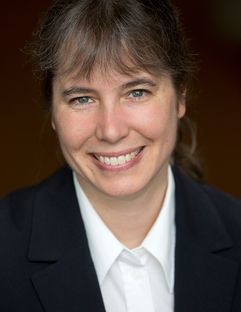 |
|||||
| Michele Benzi, Scuola Normale Superiore, Italy Michele Benzi is professor of Numerical Analysis at the Scuola Normale Superiore in Pisa. He was previously the Samuel Candler Dobbs Professor of Mathematics and Computer Science at Emory University, which he joined in 2000 after holding positions at the University of Bologna, CERFACS, and Los Alamos National Laboratory. His degrees are from the University of Bologna (1987) and North Carolina State University (1993). His research interests are in numerical linear algebra, with a focus on the solution of large sparse linear systems, especially preconditioning techniques for saddle point problems, and matrix functions. In recent years he has contributed algorithms for the numerical solution of the incompressible Navier-Stokes equations and for the analysis of complex networks. He serves on the editorial board of over 15 journals and he is a Fellow of the Society for Industrial and Applied Mathematics (2012) and of the American Mathematical Society (2018). |
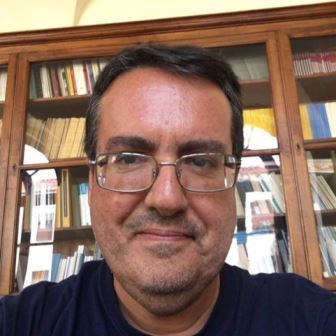 |
|||||
Eduard Feireisl, Institute of Mathematics of the Czech Academy of Sciences, Czech Republic Eduard Feireisl is senior research worker at the Institute of Mathematics of the Czech Academy of Sciences and professor at the Charles University in Prague. Presently, he is also Einstein Fellow at the Technical University in Berlin. His main research interest is the abstract theory of partial differential equations with application in fluid mechanics, including numerical analysis and effect of stochastic phenomena. He was PI of the ERC advanced grant MATHEF (Mathematical thermodynamics of fluids) in 2013{2018. Eduard Feireisl graduated at the Charles University in Prague in 1982, obtained PhD at the Czechoslovak Academy of Sciences in 1986, and became Full Professor at the Charles University in 2011. During his academic career, he has been visiting professor at several universities, including longer stays at the University of Computense in Madrid, universities of Besancon and Nancy in France, CEU University in Budapest, TU Muenchen, Germany, Ewrin Schroedinger Institute in Vienna. Eduard Feireisl authored or coauthered 7 research monographs and over 250 research papers registered by the database MathSciNet. He was invited speaker at ICM 2002 congress in Beijing and plenary speaker at SIAM conference on PDE 2009 in Miami, HYP 2012 conference in Padova, 9-th AIMS conference in Orlando. He was also invited speaker at Abel Minisymposium in Oslo 2010. He is currently member of editorial board of 13 international journals. He was Chair of the Scientic committee of the of the 6-th ECM congress in Krakow and member of the Fields Medal Selection Committee in 2018. |
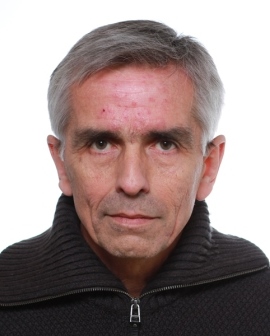 |
|||||
| Maxim Olshanskii, University of Houston, Texas, USA Maxim Olshanskii is currently professor of Mathematics at the University of Houston. He also holds adjunct professorships at Department of Mathematics and Computer Science at Emory University and Sechenov University. He was previously professor at the Department of Mathematics and Mechanics at Moscow State University. He received his PhD degree from Moscow State University (1997) and second doctorate (Habilitation) in Mathematics from the Institute of Numerical Mathematics, Russian Academy of Science (2006). His research interests are in numerical analysis and scientific computing, with applications to fluid problems, interface and free boundary problems, geometric PDEs, and cardiovascular models. He is a recipient of research awards by multiple agencies in USA, Russia and Germany as well as the Prize of the European Academy for Russian young scientists (2001). From 2014 he serves as the Managing Editor of the Journal of Numerical Mathematics. |
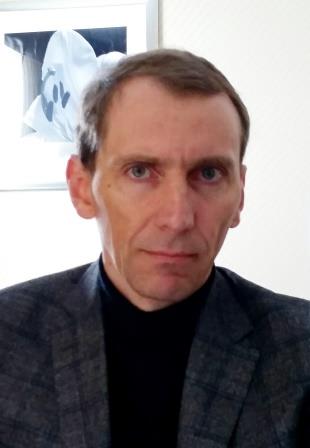 |
|||||
| Thomas Richter, Universität Magdeburg, Germany Thomas Richter is Professor for Numerical Mathematics at the Otto-von-Guericke-University in Magdeburg. Prior to joining Magdeburg University he was Professor at the Friedrich-Alexander-University Erlangen-Nuremberg and assistant professor at the Ruprecht-Karls-University of Heidelberg where he also obtained his PhD. He works on adaptive finite element methods as well as spatial and temporal multiscale schemes for different coupled Multiphysics problems. In the recent years his main focus was on efficient numerical tools for simulating and optimizing fluid-structure interaction problems and strongly nonlinear flow models with different applications in engineering, medicine and biology. |
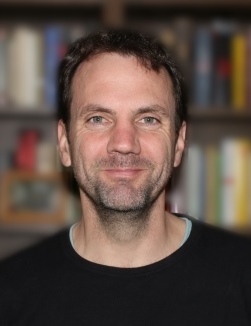 |
|||||
| Francesca Rapetti, Laboratoire de Mathematiques J.-A. Dieudonne, Universite Cote d'Azur, France Francesca Rapetti has studied mathematics at the Universita' degli Studi di Milano in Italy and got her degree in 1995. She then worked two years as junior researcher at the Italian Center for Advanced Studies, Research and Development (CRS4) in Sardinia, in the group of applied mathematics. In 1997, thank to an individual TMR fellowship from the European Community, she could reach the Universite' Pierre et Marie Curie (UPMC) in Paris and start a PhD thesis that she defended in 2000. After a post-doc in Paris, she got a permanent position as Maitre de Conferences in applied mathematics at the Universite' Cote d'Azur in Nice where she defended her Habilitation in 2008. Main research interests cover domain decomposition techniques for PDEs, Maxwell equations and Galilean electromagnetism, differential forms and Whitney finite elements in scientific computing, algebraic topology applications in electromagnetism, h, p, and hp-finite element/spectral element methods on simplices, numerical simulations for industrial applications, linear algebra and computer code development. |
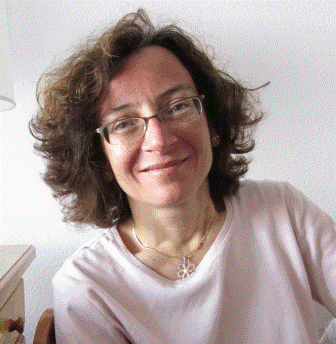 |
|||||
| Koen Bertels, TU Delft, The Netherlands Koen Bertels is professor and head of the newly created group, Quantum Computer Architecture Lab which belongs to the Quantum and Computer Engineering department in the faculty of Electrical Engineering, Mathematics and Computer Science. His research focuses on hardware/software co-design for heterogeneous multi-core platform and he investigates alternative computing architectures and technologies. Since 2013, he is heavily focusing on quantum computing. In that sense, and as head of Quantum Computer Architecture Lab, he is currently a principal investigator for architectural design in the TUDelft quantum research lab, QuTech. He is responsible for the development of an experimental micro-architecture for a real quantum processor and he is also studying the scaling challenges when more quantum bits (qubits) are involved in the computation. He collaborates very intensively with his colleague, prof. Leo DiCarlo from QuTech. Bertels’ research, as well as 3 other PIs, is financed by Intel in the context of a 10 year collaboration to build a quantum computer. He started in total 3 companies as he thinks that industrial and societal relevance is very important. |
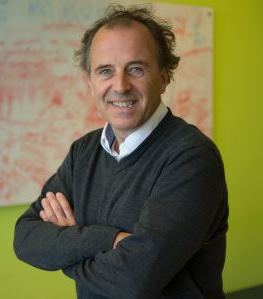 |
|||||


